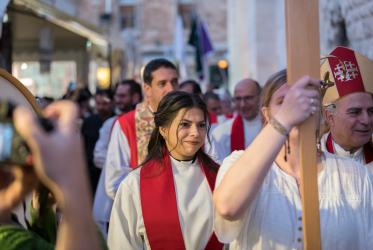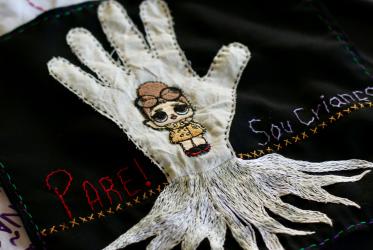Displaying 1 - 20 of 29
Hope for Palestine
11 April 2023
“This is the Day the Lord Has Made! Let us Rejoice”
06 April 2023
Thursdays in Black Bible Study: Solomon’s Wisdom in Judgment
08 December 2022
Easter Initiative Bible Study: Identity Is Sacred
14 March 2022
Easter Initiative Bible Study: Home Is Sacred
14 March 2022


